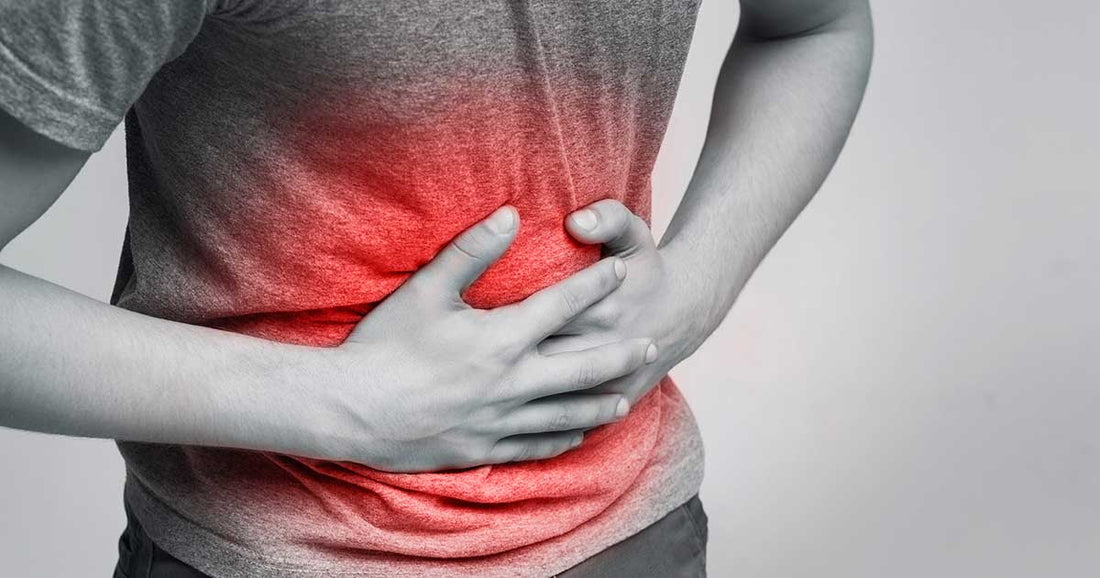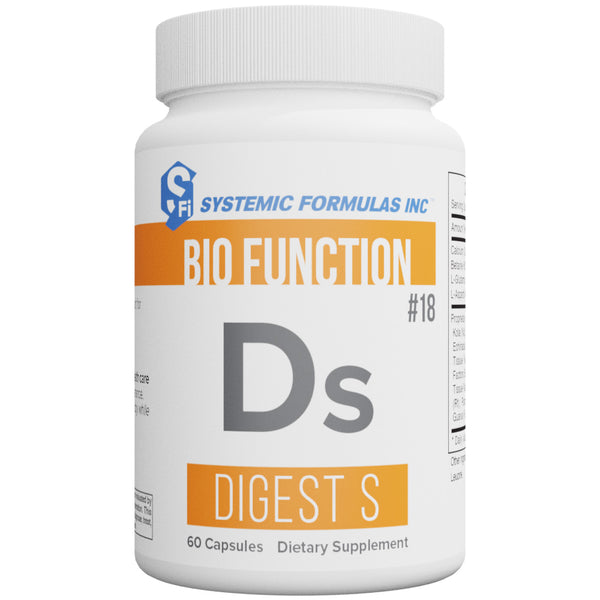The Top Natural Treatments For Holiday Bloating And Gas

Share
The holiday season is the time to enjoy the food and festivities common this time of year. Unfortunately for some, they may suffer from gas and bloating. This article will discuss the most common causes of holiday gas, bloating, and the top ways to treat it.
What is Bloating?
Bloating is a condition that affects the gastrointestinal tract. It is typically a short-term condition consisting of an excess or buildup of fluids, gas, or air in the stomach. The most common feelings are fullness, tightness, or pressure in the stomach. The stomach may or may not be extended or appear swollen when bloated. It is estimated that 10%-25% of healthy people experience occasional bloating.[1]
Top Causes of Holiday Bloating
There are many potential causes of bloating. Here are the most common:
Overeating.
The abundance of sweets and other foods during the holidays can increase the risk of overeating. Eating large amounts of food could strain the digestive system, increasing the risk of gas and bloating. In addition, eating too fast could cause a person to swallow large amounts of air, which could cause bloating.[2]
During the holidays, people may eat foods they don’t normally eat. Many of these foods have low nutritional value and might increase the risk of bloating. (This is especially important for those who are gluten or lactose-intolerant). If they are allergic to those foods, bloating could occur.
The following are considered some of the top foods that could cause bloating and foods that may help ease bloating symptoms:
|
Foods That Could Cause Bloating |
Foods That Could Ease Bloating |
|
Wheat |
Coconut water |
|
Dairy |
Ginger |
|
Cruciferous veggies |
Oatmeal |
|
Artificial sweeteners |
Water w/lemon or lime |
|
Alcoholic beverages |
Brown rice |
|
Lentils |
Bananas |
|
Beans |
Strawberries |
|
Barley or rye |
Spinach |
|
Onions or garlic |
Pineapples |
|
Chewing gum |
Avocados |
Note: if caused by overeating, bloating will subside when the excess food is digested or gas is released. This could take several hours or several days, depending on the individual.
In addition to avoiding foods that can cause bloating, here are a few ways to decrease its probability of occurring:
- Perform light exercises after eating
- Limit consumption of alcohol and carbonated beverages
- Eat (and drink) slowly
- Reduce intake of high-fat foods
- Drink plenty water
Gas.
Gas occurs naturally in the body from digestion. Belching is a common way for the body to rid itself of excess gas, but too much gas in the intestines could lead to bloating. When carbohydrates are digested, gasses are formed in the intestines, a form of fermentation. Too much fermentation in the gut could lead to bloating in some individuals.[1]
Note: many foods listed above may also cause gas, including beans, dairy products, cruciferous vegetables, and sodas.
Weight gain.
It is common to gain a couple of pounds during the holiday season. A weight gain of 10 pounds or more could leave less room for the digestion processes in the gut. The weight gain could be food or excess fluid, which could cause bloating.[1]
Constipation.
Bloating could be caused by constipation. Constipation is having 3 or fewer bowel movements per week or having hard, dry stools. Any of the following could trigger constipation:
- Changes in diet
- Physical inactivity
- Holding stool for long periods of time
- Antidepressants, narcotics, or antacids
- Lack of water and fiber-rich foods in the diet
- Not drinking enough water and eating healthy foods
Making good dietary choices during the holiday season may help decrease the risk of holiday bloating and gas.
Honorable Mentions
In addition to the causes for bloating listed above, the following health conditions should be carefully monitored during the holiday season:
- Small intestinal bacterial overgrowth (SIBO). An overgrowth of bad bacteria that lives in the intestines.
- Irritable bowel syndrome (IBS). A chronic gastrointestinal disorder of the large intestine.
- Celiac disease. An autoimmune disorder of the small intestine that is linked to gluten intolerance.
Avoiding foods that could aggravate these conditions is advised.
When to See A Doctor
While gas and bloating typically subside within a few days or less, seeing a doctor is advised if the following symptoms occur along with the bloating:
Unintended weight loss
- Severe abdominal pain
- Bloody stools
- Chest pain or discomfort
- Change in color or frequency of bowel movements
- Loss of appetite or feeling full quicker than normal
Supplements For Bloating and Gas
The following all-natural supplements may help alleviate bloating and gas:
Ds - DIGEST S 18 
DIGEST S helps to soothe and reconstruct the nervous system. Vegetable enzymes are used to provide the support needed for good digestive health. DIGEST S is especially useful for those who have sensitive stomachs or experience bloating when consuming cruciferous vegetables.
Key ingredients include Echinacea, calcium, goldenseal, and bromelain. Capsules can be taken 1-2 times per day as directed, or as needed.
Intestinal Restore 
Intestinal Restore Helps to ease many leaky gut symptoms, including bloating, gas, diarrhea, and constipation. This product supports gastrointestinal health by assisting with the following:
- Encourages healthy digestion of nutrients
- Strengthens the integrity of the intestinal lining
- Soothes inflamed tissues
Top ingredients include L-Glutamine, licorice extract, fennel seed extract, aloe vera, and marshmallow root.
ION* Gut Support 
ION* Gut Support has been shown to help strengthen tight junctions in the gut wall. Known as “nature’s firewall,” these junctions help to prevent toxins from entering the body via the gut. ION* Gut Support stands out because it is derived from the soil, which helps to create a natural environment for good gut bacteria to grow and flourish. This allows the body to protect itself from bad bacteria and improves overall health of the entire body.
ION* Gut Support helps protect the gut from gluten and glyphosate. It also helps those suffering from various gut issues:
- Bloating
- Increased gas
- Headache
- Inflammation
- Unhealthy changes in the gut membrane
For best results, ION* Gut Support should be taken 30 minutes before meals because it, but benefits can still be obtained after eating.
Summary
This holiday season, identify the foods that trigger bloating and reduce or eliminate their consumption altogether. Do you suffer from bloating? If so, give these tips a try. Leave us a comment and share some of your best tips to eliminate bloating.
References:
- Brian E. Lacy, PhD, MD, Scott L. Gabbard, MD, and Michael D. Crowell, PhD, AGAF.Pathophysiology, Evaluation, and Treatment of Bloating.2011 Nov; 7(11): 729–739.PMCID: PMC3264926.PMID: 22298969.
- Paola Iovino, Cristina Bucci, Fabrizio Tremolaterra, Antonella Santonicola, and Giuseppe Chiarioni.Bloating and functional gastro-intestinal disorders: Where are we and where are we going?.2014 Oct 21; 20(39): 14407–14419.doi: 10.3748/wjg.v20.i39.14407.PMCID: PMC4202369.PMID: 25339827.
